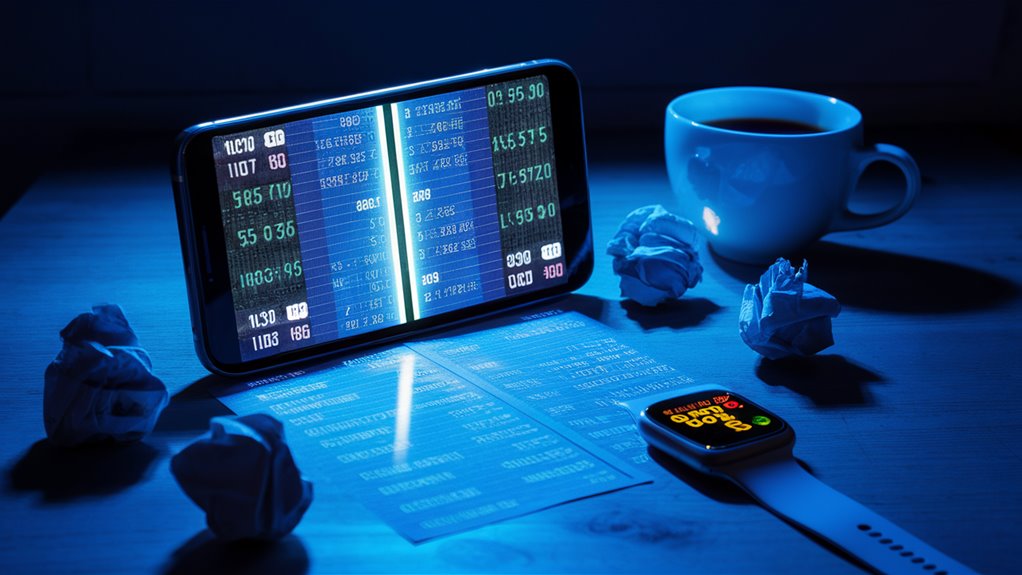
Have you ever watched sports betting odds in real time? It’s fascinating how they never sit still, constantly shifting and adjusting like a living, breathing thing. Think of it as a giant puzzle where countless pieces move simultaneously – from breaking injury news to sudden weather changes, and even the betting patterns of other players.
Let’s break this down a bit. When you’re tracking odds throughout the day, you’ll notice they respond to basically everything. Maybe a star player tweaks their ankle during warm-ups, or perhaps there’s an unexpected surge of bets on the underdog. These little changes might seem random at first glance, but there’s usually a story behind each movement.
For casual bettors, these fluctuating odds might just look like numbers doing a little dance. But here’s the thing – understanding these movements can be the difference between making smart bets and throwing money away. You know how stock traders watch market trends? Well, successful sports bettors do something pretty similar with odds movements.
The really interesting part is how quickly everything happens nowadays. Thanks to technology, odds adjust almost instantly to new information. Just think about it – a coach mentions at a press conference that their star player is feeling under the weather, and boom, within minutes, the odds start shifting across every betting platform.
Getting comfortable with this constant movement isn’t just helpful – it’s pretty much essential if you want to take your betting seriously. It’s kind of like learning to swim in a moving current instead of a still pool. Sure, it’s more challenging, but once you get the hang of it, you’ll be much better equipped to spot real opportunities when they pop up.
Understanding Real-Time Odds Movement
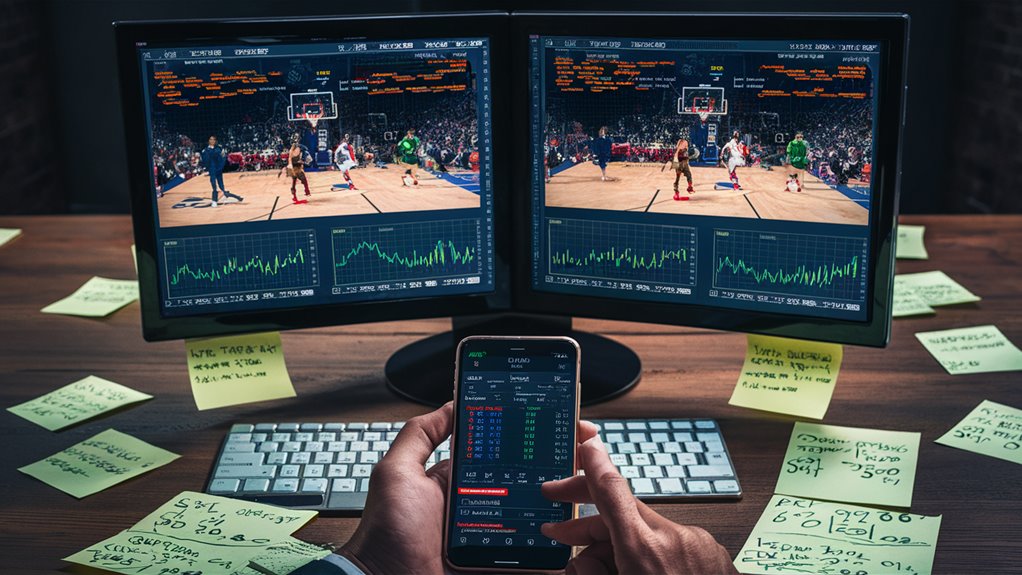
Let’s break down how odds movement works in sports betting, because it’s actually pretty fascinating when you get into it. Think of odds movement as a living, breathing thing that tells you what’s really happening behind the scenes in the betting world.
You know how the stock market fluctuates throughout the day? Well, betting odds work in a similar way.
When you’re watching those numbers change in real-time, you’re actually seeing two main factors at play: where people are putting their money and any new information that could affect the game’s outcome.
Here’s something interesting – professional bettors (the sharp money folks) tend to jump on odds early, while casual bettors usually wait until closer to game time.
It’s kind of like shopping for concert tickets – the pros know exactly when they go on sale and snag them immediately, while most people buy them later.
Keeping tabs on these movements across different sportsbooks can really pay off. Let’s say you notice the odds shifting dramatically at one book but not others.
This could mean a few things: maybe some smart bettors found an edge, or perhaps the public is just really excited about one team.
Timing is everything in this game. Take pre-game movements, for instance.
A sudden shift might mean a star player just got injured, the weather forecast changed, or some other crucial news dropped.
Some sportsbooks are bolder than others with their adjustments, which can create sweet spots for savvy bettors.
Want to get good at spotting these patterns? Start keeping track of how lines move and what causes those changes.
Once you build up enough experience watching these patterns, you’ll start developing an almost sixth sense for where the odds might go next.
It’s like becoming a weather forecaster – the more patterns you observe, the better 토토사이트추천 your predictions get.
Market Forces Behind Odds Shifts
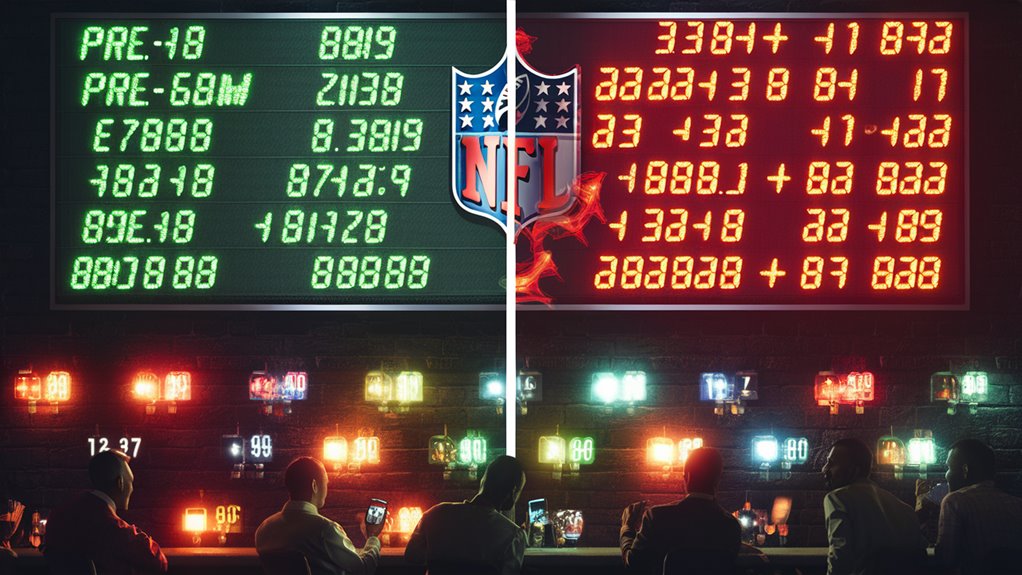
Ever wondered what makes betting odds jump around like they do? Let’s break down the fascinating world of market forces that shape those numbers you see when placing a bet.
Think of sharp money as the big players at the table. These professional gamblers really know their stuff, and when they place substantial bets, bookmakers sit up and take notice.
It’s like when that smart friend of yours makes a prediction – you tend to trust their judgment, right? Well, sportsbooks feel the same way, adjusting their lines quickly when these seasoned bettors make their moves.
But it’s not just about the pros. Regular folks like us can actually move the needle too, especially during major events. You’ve probably noticed how Super Bowl odds shift when everyone and their cousin starts betting on the favorite.
Weather forecasts, last-minute injuries, and starting lineup changes can send ripples through the betting world faster than you can say “touchdown.”
Here’s something interesting: bookmakers keep a close eye on each other too. When one major sportsbook changes their odds, others usually follow suit pretty quickly.
It’s like a domino effect, really. They’re all trying to stay competitive while avoiding situations where clever bettors can exploit price differences.
And let’s not forget about those unexpected curveballs that can shake things up. Breaking news, rule changes, or even global events can suddenly impact how games might play out.
Understanding all these moving parts can help you spot good betting opportunities before everyone else catches on. Pretty cool when you think about it, right?
Technology and Automated Betting Systems
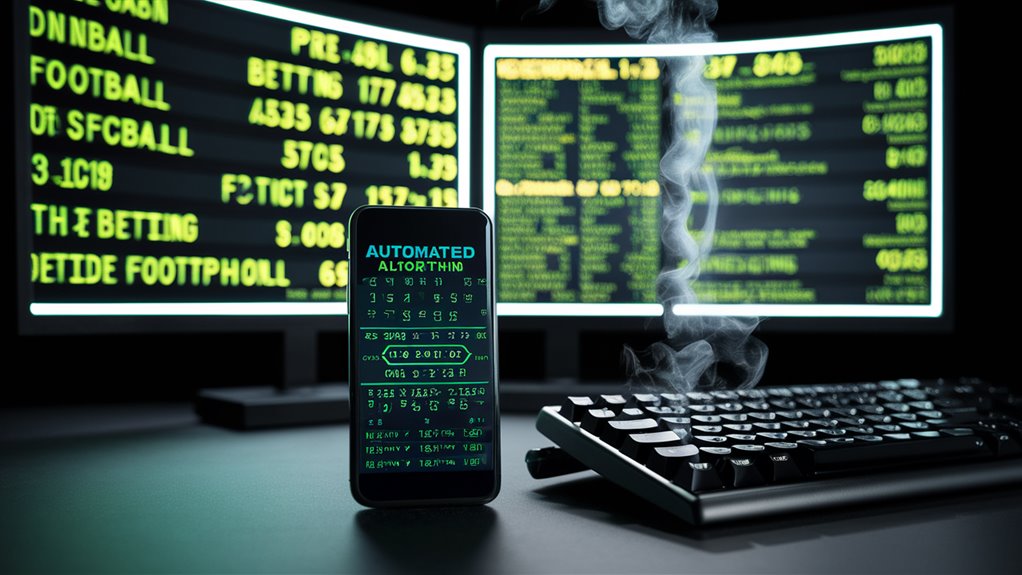
Let’s talk about how betting has changed in our digital age. You know how technology seems to be everywhere these days? Well, it’s completely transformed the way people place bets, and I’ll tell you why that matters.
Think of modern betting systems as your smart assistant, constantly scanning through countless betting opportunities faster than any human could. These clever programs can spot patterns, track odds changes, and even find those golden opportunities where different bookmakers offer varying odds on the same event.
What’s really cool is how these systems can do all the heavy lifting for you. Imagine having a friend who never sleeps, always watching the markets and ready to place bets the second conditions look right.
That’s basically what automated betting software does. It crunches numbers from all sorts of sources, like team stats, weather reports, and player updates, to help make smarter betting decisions.
But here’s the thing – you can’t just set it and forget it. These systems aren’t magic bullets that guarantee wins. Just like any tool, they need regular fine-tuning and a good dose of common sense. Many bookmakers have gotten pretty savvy about spotting automated betting, and they’re not exactly fans of it.
The real trick is finding the sweet spot between using technology and trusting your gut. Think of it like 피어투피어 도박의 미래 with a recipe app – the app gives you the measurements and steps, but you still need to taste the food and adjust the seasonings.
The same goes for betting – let the technology guide you, but don’t let it make all the decisions for you.
Risk Management During Live Games
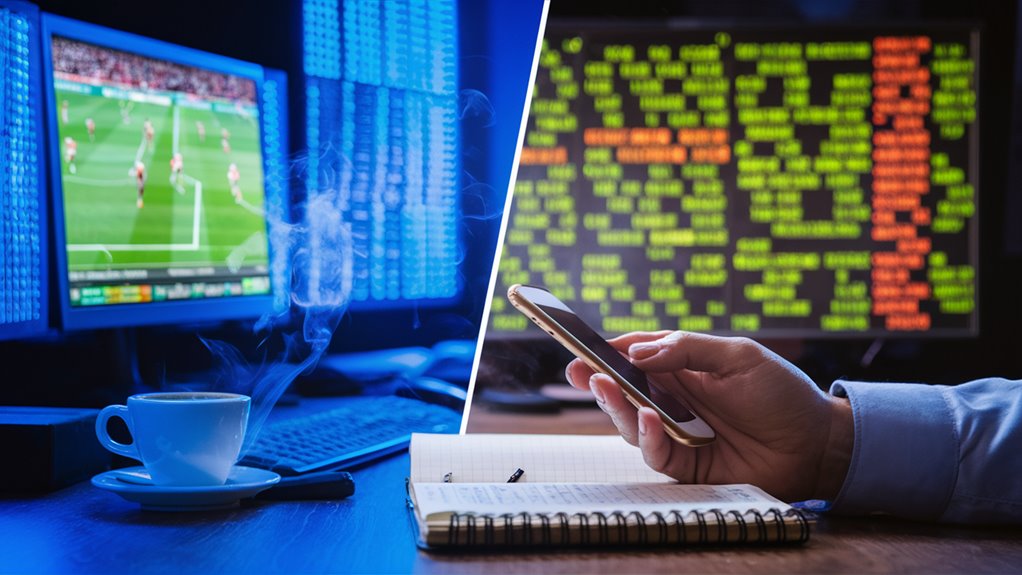
Let’s talk about managing risks during live games – it’s a whole different ball game compared to pre-game betting. You know how automated systems can help you make decisions before kickoff?
Well, when the action’s happening live, you need quick thinking and sharp instincts.
First things first: always set your loss limits before the whistle blows. Trust me, it’s way easier to stick to your limits when you decide them with a clear head.
Think of it like going to a casino with just the cash you’re willing to spend – once it’s gone, you’re done.
Smart bettors spread their live bets across different markets. Maybe put some money on the point spread, try a few player props, and throw in some totals bets.
It’s kind of like not putting all your eggs in one basket, you know?
When you see those odds jumping around, take a breath and ask yourself: “Is this movement because of what’s actually happening on the field, or are people just betting heavy on one side?”
Sometimes the crowd gets it wrong, and that’s where opportunities pop up.
Here’s a pro tip: keep some money in your back pocket for those “what if” moments. Let’s say you made a pre-game bet that isn’t looking so hot – you can use live betting to soften the blow or even lock in some profit if things turn around.
Pay attention to what’s happening on the field too. Keep an eye on who’s controlling the game, which team’s shooting better, and definitely watch out for any injuries.
These little details can help you decide whether to hold steady or switch up your strategy.
Profitable Line Shopping Strategies
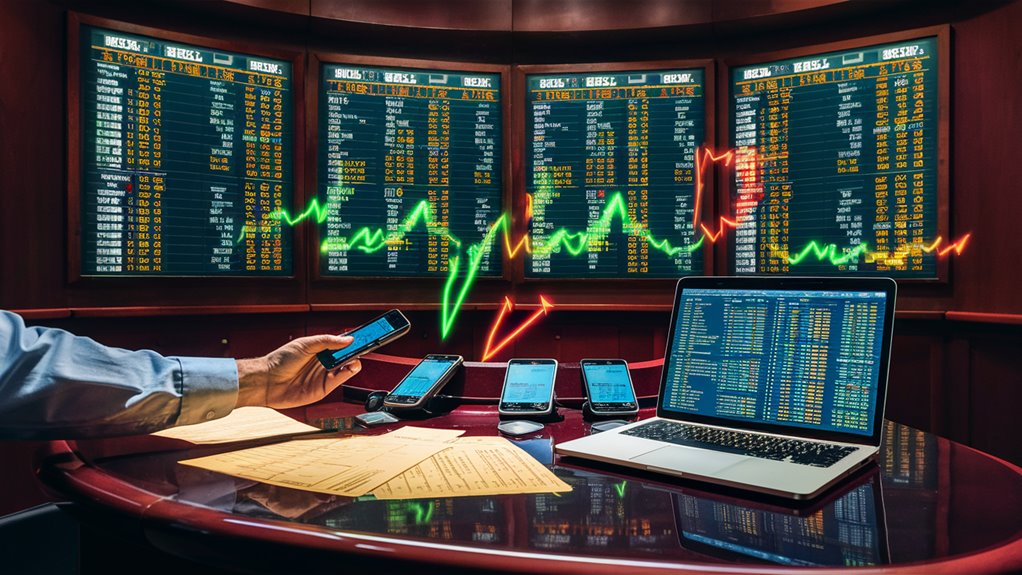
Let’s talk about line shopping in sports betting, because it’s honestly one of those skills that can make or break your betting success.
You know how people get excited about finding the best deals when shopping for clothes or electronics? Well, the same principle applies here, but the payoff can be much bigger.
Think of it this way: if you’re only betting at one sportsbook, you’re kind of like someone who only shops at one store without checking prices anywhere else. Pretty limiting, right?
That’s why smart bettors open accounts with multiple legitimate sportsbooks. It’s like having a handful of go-to stores where you can compare prices before making your purchase.
Now, keeping track of all these odds might sound overwhelming at first, but there are some great tools out there that do the heavy lifting for you.
Odds comparison websites are like your personal shopping assistant, showing you all the different prices in one place. And just like how stores adjust their prices differently during sales, sportsbooks adjust their lines at different speeds when news breaks or injuries happen.
Here’s a pro tip: start noticing which sportsbooks consistently give you better deals on specific sports.
Maybe one book always has great NFL spread odds, while another is your go-to for baseball betting. It’s worth keeping track of these patterns in a simple spreadsheet.
And don’t forget about the juice, those extra fees sportsbooks charge. A -110 line is like getting something on sale compared to a -115 line for the same bet.
Psychology of Quick Decision Making

Let’s talk about how our brains work when we need to make split-second decisions. You know those moments when you have to think fast and every second counts? Well, it’s all about understanding what’s going on in your head during these high-pressure situations.
Think of your mind as a racing car driver approaching a turn. Just like they need preset rules about when to brake and when to accelerate, you need clear guidelines for your quick decisions.
This means knowing your limits and boundaries before you’re in the heat of the moment. Maybe it’s setting specific criteria, or having a mental checklist you can run through in seconds.
We’ve all been there – that gut-wrenching feeling when we need to decide right away. Sometimes our emotions try to hijack our thinking process.
The key is recognizing these emotional triggers for what they are. Are you feeling anxious about missing an opportunity? Or maybe you’re trying to make up for a previous mistake? These feelings can cloud our judgment if we’re not careful.
Here’s a practical tip: keep a decision diary. Jot down not just what you decided, but how you felt when making those quick choices.
Were you stressed? Confident? Uncertain? Over time, you’ll start seeing patterns in your decision-making style. It’s like having a personal roadmap of your thinking process.
Remember, it’s perfectly okay to take a pass when you’re not sure. Better to wait for the right moment than jump into something just because you feel pressured.
The goal isn’t to make lightning-fast decisions every time, but to build a system that helps you think clearly when time is tight.
Practice this approach regularly, and you’ll develop what feels like a sixth sense for quick decisions. Trust me, your future self will thank you for putting in the work now to build these mental muscles.
Common Questions
What Percentage of Sports Bettors Consistently Profit From Real-Time Odds Changes?
Let’s talk about the reality of sports betting profits. You know how some people make it sound easy to get rich from following odds movements? Well, the truth might surprise you. Only a tiny fraction of bettors, we’re talking less than 5%, actually manage to turn a consistent profit from tracking and acting on real-time odds changes.
Think of it like day trading in the stock market. Sure, it looks straightforward enough – buy when the odds are good, sell when they shift in your favor. But in practice? It’s incredibly challenging. Most bettors simply don’t have the right combination of tools, skills, and split-second judgment needed to make this strategy work.
Picture trying to juggle multiple betting sites, tracking odds that change by the second, while also analyzing whether those changes actually represent real value. It’s pretty intense stuff. You need sophisticated software, deep market knowledge, and the ability to make snap decisions under pressure. Plus, you’ve got to have enough bankroll to weather the inevitable rough patches.
The successful few who pull this off usually invest years learning the ropes and developing their systems. They treat it like a full-time job, not just a weekend hobby. So while beating the odds isn’t impossible, it’s important to understand that most casual bettors won’t join that profitable 5% club without serious dedication and resources.
How Do Different Sportsbooks Coordinate Their Odds Movements Across Multiple Platforms?
Ever wondered how sportsbooks seem to move in sync across different platforms? Well, it’s actually quite fascinating how these odds stay coordinated. Think of it like a sophisticated dance where multiple partners need to stay in perfect rhythm.
Behind the scenes, sportsbooks use smart computer systems that automatically adjust odds in real-time. It’s similar to how stock markets work, with prices constantly shifting based on various factors. The big industry leaders, like major Vegas books, typically set the pace, and others follow their lead to stay competitive.
These platforms share data feeds with each other, kind of like a group chat where everyone gets the same information at once. When sharp bettors (the pros who bet big money) place their wagers, it sends ripples through the whole system. Sportsbooks keep a close eye on this action to maintain balanced books and avoid taking too much risk on any single outcome.
You know how your weather app gets constant updates? Sportsbooks work similarly, with odds adjusting almost instantly across different sites and apps. They use complex algorithms that factor in everything from player injuries to betting patterns, helping them stay synchronized and competitive in this fast-paced market.
Of course, each sportsbook might tweak their odds slightly based on their specific customer base and risk management strategy, but they generally stay within a close range of each other. It’s all about finding that sweet spot between attracting bettors and protecting their bottom line.
Can Artificial Intelligence Predict Real-Time Odds Changes Before They Happen?
Let’s talk about AI and sports betting predictions. You know how everyone wants to get ahead of the game when it comes to odds movements? Well, artificial intelligence has gotten pretty good at spotting patterns that might signal upcoming changes in betting odds.
Think of it like weather forecasting. AI can analyze countless data points, from betting trends and market behaviors to social media buzz and team statistics, giving us a decent heads-up on potential shifts in the odds. But here’s the catch – it’s not perfect, and it never will be.
Just like you can’t predict with 100% certainty whether it’ll rain next Tuesday, AI can’t guarantee exactly how odds will move. Why? Because real-world events are unpredictable. A star player might get injured during warmup, breaking news could shake up team dynamics, or a sudden surge of big bets could throw everything off balance.
What AI can do is give us educated guesses based on historical patterns and real-time data analysis. It’s like having a really smart friend who’s amazing at spotting trends but can’t see into the future. The technology helps bookmakers and bettors make more informed decisions, but it’s still just one tool in the betting toolkit.
What Computing Power Is Needed to Run Effective Real-Time Betting Algorithms?
Let’s break down what you really need to run effective betting algorithms in real-time. You know how frustrating it can be when your computer lags during crucial moments? Well, that’s exactly what we want to avoid here.
First up, you’ll want a seriously powerful processor – think of it as the brain of your operation. Just like you wouldn’t try to solve complex math problems with a basic calculator, you shouldn’t run sophisticated betting algorithms on a standard laptop. Most successful traders use high-end multi-core processors to handle all those calculations without breaking a sweat.
Memory is another big deal. While 32GB RAM is the bare minimum, you might want to consider 64GB if you’re running multiple algorithms simultaneously. It’s like having a bigger desk to spread out all your work – the more space you have, the smoother everything runs.
Now, here’s something people often overlook: network speed matters just as much as processing power. You could have the fastest computer in the world, but if your internet connection is sluggish, you’re already losing the race. Look for ultra-low latency connections, ideally with backup options in case your primary connection hiccups.
If you’re planning to scale up, cloud computing services can be a game-changer. They’re like having an expandable supercomputer at your fingertips. You can quickly add more resources during busy periods and scale back when things are quieter, saving you both money and headaches.
Are There Legal Restrictions on Using Automated Betting Systems Internationally?
Let’s talk about automated betting systems and their legal status around the world. You might be surprised to learn that there’s no simple yes-or-no answer when it comes to using betting bots internationally. Think of it like driving rules – what’s perfectly fine in one country might get you in trouble in another.
In some places, automated betting systems are completely off-limits. The authorities treat them like unwanted guests at a casino, and using one could land you in hot water. Other countries take a more relaxed approach, but they’ll want to keep a close eye on what you’re doing. It’s kind of like getting a driver’s license – you can operate the vehicle, but you need to follow the rules and prove you know what you’re doing.
Before you jump into using any automated betting system, it’s really important to check the specific regulations in your area. Some countries require special licenses, similar to how you’d need a business permit. They might ask you to report your trading activities regularly or limit how much you can bet using automated systems. The key is doing your homework first, because what’s perfectly legal in one place could get your account frozen or worse in another.
